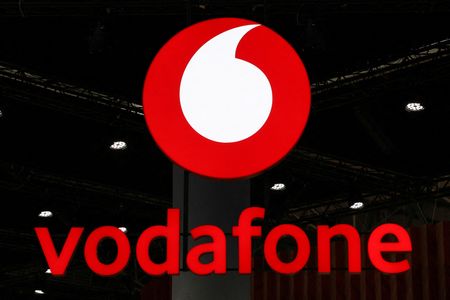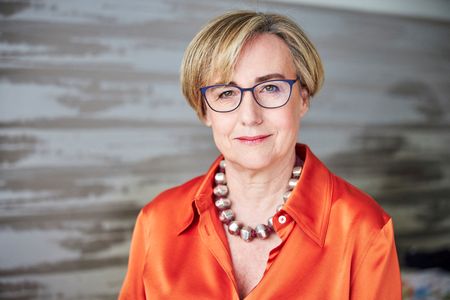 1
1 1
1

By Kate Holton and Paul Sandle
LONDON (Reuters) – When Vodafone named Margherita Della Valle as CEO last month, investors adopted a wait-and-see approach to whether the company veteran was the right person to jolt it out of a deep malaise.
Within weeks, Della Valle gave them a stark assessment of the problems Vodafone faces. The reaction has been brutal, with the company’s shares sliding to 20-year lows.
Della Valle, an Italian who joined Vodafone in 1994 and had been its chief financial officer since 2018, vowed on Tuesday to cut 11,000 of 90,000 jobs and speed up the delivery of new offers by giving local country bosses greater autonomy.
Her verdict on the situation in which Vodafone now finds itself has amplified calls for deals to overhaul key markets and for an improvement in the way it operates.
Complicating matters is an investor base with conflicting demands, concerns about Vodafone’s dividend outlook and a workforce reeling from the deep job cuts.
“They’re fighting too many battles on too many fronts, with still too much debt on the balance sheet,” said investment director Russ Mould at AJ Bell, adding that the share price is reflecting concern around the dividend.
The British group remains one of the world’s biggest telecoms companies, with a presence across Europe and Africa, but several years of underperformance versus peers had prompted some investors and analysts to call for an external hire as CEO.
While many observers in and outside the company had expected a fresh face, Della Valle won over the board.
This week she vowed to put a greater emphasis on Vodafone’s enterprise division, long a strength, where she believes it can grow share in an expanding market as consumers look for ever-cheaper deals.
Vodafone’s shares are trading at lows last seen in 2002, largely due to a cut to free cash flow forecasts.
“With the shares now yielding north of 9%, it is clear that Vodafone is a dividend stock incorporating the expectation of a dividend cut,” Enders Analysis told clients.
Della Valle dismissed concerns over net debt, which Vodafone has lowered to 33.4 billion euros ($37 billion), giving it a 2.5 times net debt to core earnings multiple on a pro-forma basis.
“This puts any concerns about our debt levels firmly behind us,” she said.
DIFFERENT DEALS
Vodafone made its name by often audacious dealmaking, and once had presences across Europe, Africa, Australia, India and the United States.
It has since retrenched but is now under pressure to go further and either exit or seek mergers in some European markets such as Spain, where it has begun a strategic review and is open to structural change like a sale or a network separation.
Della Valle said deals were a priority, but would not give any timing, and defended the structure of Vodafone, which has three major shareholders which could benefit from a break-up.
Getting deals done is proving difficult.
Talks to merge its British business with the UK arm of Hutchison, which it confirmed in October, are ongoing.
Meanwhile, its debt, a low share price and the structure of Vodafone all add complexity. Investor frustration with the speed of change led to Della Valle’s predecessor Nick Read stepping down in December.
One large, long-term institutional investor said Vodafone had decent assets but needed to deliver greater value.
An investment banker who has previously worked with Vodafone said the new CEO had done a good job of committing to making changes without tying herself to a timeframe, when it is still not clear how competition regulators would respond.
The rationale for owning assets around the world actually makes more sense now, when enterprise clients want joined up services in areas such as Internet of Things, the banker added.
Complicating its room for manoeuvre is Vodafone’s shareholder base, where Emirati telecoms firm Etisalat has built up a 14.6% stake and said it will not go beyond 25%. It has also recently secured a board seat.
Enders said the current stake would prevent other takeovers but it meant Etisalat’s e& “appears to be in the strategic driving seat” and championing an “empire-building approach”.
That may not sit well with Vodafone’s other key investors – French telecoms billionaire Xavier Niel, who competes with it in Italy, and Liberty Global, its partner in the Netherlands. Both are known for their savvy dealmaking.
The banker said for someone like Niel, the shareholding was a way to exert pressure on Vodafone as it seeks market change.
When Vodafone appointed Della Valle it praised her “pace and decisiveness”, and despite the tough outlook she won plaudits for her handling of the results, delivering Tuesday’s presentation alone because she does not yet have a finance director.
The cure, she said, was fundamental change – but that would take time.
($1 = 0.9084 euros)
(Additional reporting by Sarah Young; Editing by Alexander Smith)